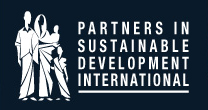Why This Field Worker is like a Caterpillar Dealer
Upon graduation from Missouri University of Science and Technology (it was called University of Missouri-Rolla in those days), I went to work for Caterpillar Tractor Company in their East Peoria Plant. This was their largest plant and the only one in the world that made their big crawler tractors - the D6 through the D9. 5 years later, they introduced the D10 with its new triangular track design. The plant was huge, employing some 18,000 people. It was an exciting place, especially for a newly minted metallurgical engineer. But, I digress. The point of this article is to discuss how those tractors got to a customer who wanted one.
Customers didn't go to East Peoria and pick one up like you go to a car dealership. Nor did they go to Caterpillar headquarters across the Illinois River. They had to go to a Cat dealership. That was Caterpillar's business model. Customers dealt with independent Caterpillar dealers who bought a franchise to sell Cat's earthmoving and construction equipment.
What's this got to do with the poor in Bangladesh? Well the social worker you see here is the "dealer" for the Poverty Eradication Program (aka PEP) in Bangladesh. And, while these workers are not independent - they get paid by PEP - they have a very essential and critical role. PEP's goal is to help the poorest of the poor in a developing country. That means they want to identify and target their programs to help the poorest and lowest quadrant of the people living there. These "hard core poor" (HCP) as they are referred to generally have no land, have a high level of food and economic insecurity - that means they may have less than 3 meals per day, and the children frequently suffer from malnutrition. Here's where the field workers come in. They conduct a census, they evaluate and categorize the families in their designated area and identify exactly the population that PEP wants to devote their efforts to. That support comes in many forms and is tailored to the needs of each family. It could be vitamins for child nutrition, a tin roof for their home, chickens or cows or goats to provide milk and raise to sell for additional income. Or it could be providing opportunities for women to do sewing or embroidery.
Once support begins, the social worker makes regular visits to assess progress and respond to changing needs. Ultimately the goal is to bring these families out of poverty to a state of self-sufficiency. And, this program works. In the four of the nine areas where PEP has concentrated its efforts, poverty of the kind I'm describing is down by more than 50%.
Unfortunately, the pandemic has halted and in many areas reversed some of this progress as many people have lost employment and many people from the cities have moved to remote areas where the cost of living is lower but they usually don't have work to support themselves.
But, the key is that these social workers are the way PEP gets to its market. They have experience and they know and are trusted by the people they are serving. The poor are frequently taken advantage of so this trust is essential.
So, the next time you see a piece of Caterpillar equipment think of these social workers who are doing heroic work to put the poorest of the poor in Bangladesh on the road to food security, economic security and self-sufficiency. It doesn't happen without them.
To support the continued efforts of our field workers in Bangladesh, click here. Thank you.
